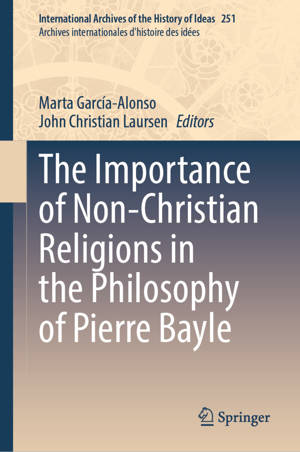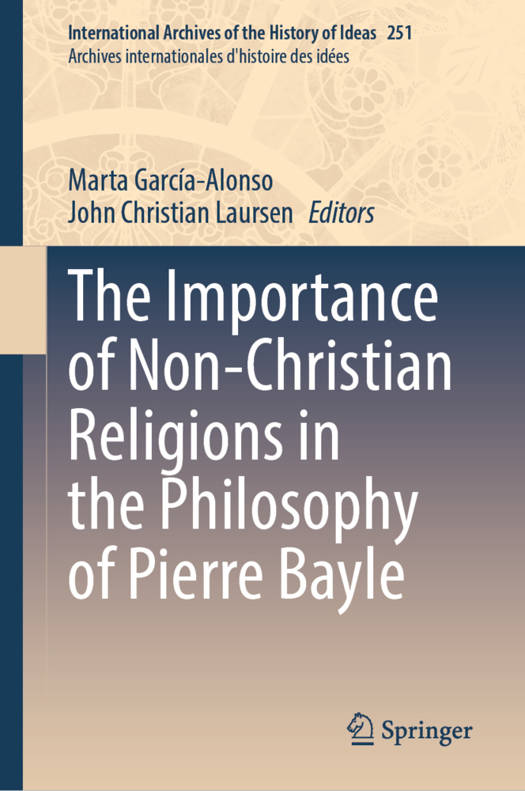
Bedankt voor het vertrouwen het afgelopen jaar! Om jou te bedanken bieden we GRATIS verzending (in België) aan op alles gedurende de hele maand januari.
- Afhalen na 1 uur in een winkel met voorraad
- In januari gratis thuislevering in België
- Ruim aanbod met 7 miljoen producten
Bedankt voor het vertrouwen het afgelopen jaar! Om jou te bedanken bieden we GRATIS verzending (in België) aan op alles gedurende de hele maand januari.
- Afhalen na 1 uur in een winkel met voorraad
- In januari gratis thuislevering in België
- Ruim aanbod met 7 miljoen producten
Zoeken
The Importance of Non-Christian Religions in the Philosophy of Pierre Bayle
€ 198,45
+ 396 punten
Omschrijving
This book offers a fresh perspective on early modern philosophy by highlighting Pierre Bayle's engagement with non-Christian sources. If our major political, ethical, and epistemic doctrines were solely rooted in Christian genealogies, it would seem necessary to include Christianity in the European Constitution. However, this book reveals a different story. The anthropological insights gained from encounters with other lands not only enriched the ethical and political discussions of philosophers, historians, and literati, but also paralleled the incorporation of empirical data from these regions into fields like medicine, botany, or navigation. These accounts became the building blocks for ethical and political thought, a wellspring of new ideas, thereby making the understanding of other cultures and religions pivotal in reflecting upon the specificities of Europe. Pierre Bayle's work exemplifies this transformative influence.
Specificaties
Betrokkenen
- Uitgeverij:
Inhoud
- Aantal bladzijden:
- 209
- Taal:
- Engels
- Reeks:
- Reeksnummer:
- nr. 251
Eigenschappen
- Productcode (EAN):
- 9783031648649
- Verschijningsdatum:
- 23/01/2025
- Uitvoering:
- Hardcover
- Formaat:
- Genaaid
- Afmetingen:
- 164 mm x 237 mm
- Gewicht:
- 467 g

Alleen bij Standaard Boekhandel
+ 396 punten op je klantenkaart van Standaard Boekhandel
Beoordelingen
We publiceren alleen reviews die voldoen aan de voorwaarden voor reviews. Bekijk onze voorwaarden voor reviews.








